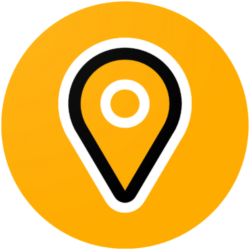
Intro to the Educator Virtual Welcome Packet
South of Seoul volunteers would like to welcome you to South Korea by introducing the Educator Virtual Welcome Packet. Deciding to move to Korea to become an educator may bring both a mix of joy, excitement, fear, and sadness. Many of our volunteers moved to South Korea as educators and relate to the many unique implications of such a life choice.
What types of educators work in South Korea?
As an educator in South Korea, you may work as an:
- EFL teacher in a public school
- Professor in a university
- EFL educator in a hagwon/academy
- Teacher in an international school
Since a variety of educators with different visas live in South Korea, some of the blogs included in this Educator Virtual Welcome Packet may include information for different visa types such as F4, F5, E2, E1, etc.
Does everyone have the same experience in Korea?
Each educator experiences life in Korea from their own social/cultural lens. Such lenses may be based on their country of origin, health care needs, culture, race, Korean language ability, location, and so much more. This means that each educator may experience Korean life in different ways unique to them.
South of Seoul volunteers seek to provide information that can be easily emotionally accessed and viewed through a variety of social/cultural lenses. We do this in order to support the educator community with empathetic and equitable information.
What’s in a Virtual Welcome Packet?
South of Seoul volunteers compiled an Educator’s Virtual Welcome Packet to help with this transition. Such a virtual welcome packet for educators includes information regarding commonly asked questions or shared experiences:
- Health Care
- Visa compliance
- Housing
- Hobbies
- Community building
- Home maintenance
- Mental health support
Where does this welcome packet information come from?
South of Seoul volunteers compile lists of commonly asked questions from a cross-section of ex-pat-focused Facebook Groups and personal interviews. We then review the information available online and contact the appropriate government agencies to confirm, clarify, and verify the information. After researching the information, we create blogs that address the information needed in the educational community.
That said, South Korea uses an agile government model which means information may change quickly and with minimal notice. Always confirm and cross-reference information between sources.
Will I read this information once and have the best life in Korea ever?
Absolutely not. As previously mentioned, each educator brings their own social/cultural lens. Such lenses may impact such things as 1) the perception of information included in blog articles, 2) the meaning of interactions and experiences in daily life, and 3) perceptions of how information, interactions, and experience relate in life.
South of Seoul volunteers HIGHLY recommend reading each of these blog articles more than once over time. Such articles provide readers with a great deal of insight which it might take time to relate to.
For example, read the SOS blogs before arriving in Korea and then a month after arriving in Korea. Different information will become important during those times.
I read all the blogs but I still have questions!
If you have ideas for blogs that need to be added to this list, feel free to let us know in the comments or message us at southofseoul@gmail.com.
Where can I find all of South of Seoul’s information?
Download the South of Seoul app! We have designed an app specifically for international residents living in South Korea with a focus on Pyeongtaek and the surrounding areas. After you read these blogs the app will take your life to the next level. Click on the Google Play or App Store icons.

Founded in 2015, the South of Seoul team consists of volunteers on three continents working together to support English-speaking people traveling or living in South Korea. South of Seoul volunteers work with organizations and individuals across South Korea to improve equitable access to information across South Korea. Much of South of Seoul’s information focuses on Pyeongtaek, Gyeonggi-do, South Korea.
Blogs published under the authorship of “South of Seoul” include blogs compiled by multiple volunteers to improve access to standardized information unrelated to individualized personal experiences.


